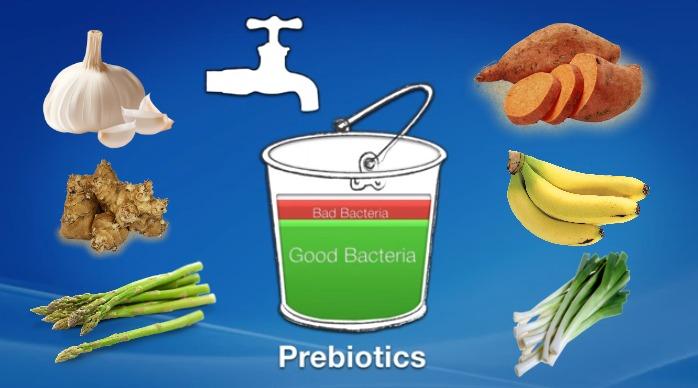If you are keen on super foods, or ever take a glance at your food labels, you must have consumed or heard of pro and prebiotics. The health craze to include them in the diet is alarming from the plethora of social media health enthusiasts, to the extreme clean eaters, not to mention the companies making a kill from claiming that their products contain these ingredients. To decipher some myths, I will summarize a current report recently released by the World Gastroenterology Organisation on global guidelines concerning probiotics and prebiotics.
Probiotics are live microorganisms that, when administered in adequate amounts confer health benefits to the host. Prebiotics on the other hand, refer to selectively fermented ingredients that result in specific changes in composition or activity of the gastrointestinal microbiota, thereby benefiting the host’s health.
https://www.ask-thenutritionist.com/useful-bacteria-in-your-diet/
Another frequently used term is synbiotics, that refers to products that have both probiotics and prebiotics with conferred health benefits. Simply put, the use of food items with prebiotic and probiotic ingredients improves the gut environment which is composed of commensal microbes, for the benefit of human health. Prebiotics in food are mostly found in biscuits, cereals, chocolate, spreads and dairy products for example. However, not all strains of prebiotics in food work the same. For example, the prebiotics in onions, bananas, honey and garlic improve calcium absorption and possibly lower blood lipid levels, while prebiotics in some synthetic drugs alleviate constipation. As a result, when buying commercial products from the stores, it is paramount to understand exactly which strain of probiotic or prebiotic is in the food. The market place is flooded with a range of products from conventional supplements, to processed foods that seem to be helpful. Each region of the world has got its structured way of mentioning the probiotic and prebiotic ingredients of their products. However, from a general scientific perspective, probiotics are alive and are susceptible to die off during the product storage. Consequently, ensure that you only buy from responsible manufacturers who label the shelf life of their probiotic strains they have included in their products.
Currently, from a clinical nutrition perspective, there are specific recommendations for various indications based on scientific evidence. These can be summarized as follows:
| Clinical Applications | Strength of Scientific Evidence |
| Colorectal Cancer prevention | There is limited data showing any benefit of probiotics and prebiotics in prevention of colorectal cancer |
| Treatment of Acute Diarrhea | There are some results indicating that the probiotics could be safe and effective, however only for some specific strains |
| Prevention of Acute Diarrhea | Only certain probiotics in specific settings are effective in preventing adult or childhood diarrhea |
| Immune Response | Several probiotics and prebiotic oligofructose from foods such as bananas improve the immune system. |
| Inflammatory bowel disease | Probiotics help in preventing Pouchitis, ulcerative colitis but not Crohn’s disease. |
| Irritable bowel syndrome | Some probiotics help prevent bloating and flatulence |
| Colic | Probiotics in some drugs help in reducing crying time in breastfed infants with colic |
| Lactose intolerance | Streptococcus thermophilus and Lactobacillus delbrueckii reduce lactose intolerance. These can be found in yogurt that has live cultures |
| Non-Alcoholic Fatty liver disease | Probiotics work positively as a treatment option to manage Non-Alcoholic Fatty liver disease. However, further studies are still being carried out to prove this scientifically. |
| Necrotizing enterocolitis | Probiotic supplementation significantly reduces the risk of necrotizing enterocolitis in preterm neonates. |
Conclusively, it is vital to read your food labels before choosing a prebiotic, probiotic or synbiotics in your diet. Consult your nutritionist or doctor to weigh in on your options before self-administering a specific strain in your gut.
Research obtained from World Gastroenterology Organisation Global Guidelines released in February 2017









